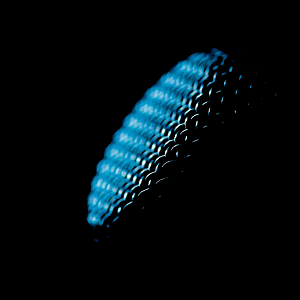Wen Commotion EP
On paper, Commotion—the Keysound debut of London producer Owen Darby (a.k.a Wen)—doesn’t come across as […]

On paper, Commotion—the Keysound debut of London producer Owen Darby (a.k.a Wen)—doesn’t come across as anything particularly unique. Darby makes music at 130 bpm, but with one foot firmly planted in the dark spaciousness of classic dubstep. Like countless other young producers breaking out of the UK right now, his productions owe an unabashed debt to vintage grime. Each of the four tracks here rides along on patchwork of square-wave synth sounds and cold percussive noises pinched wholesale out of early Eskibeat and Ruff Sqwad instrumentals, and Darby peppers each with snatches of vocal sourced from relatively easy-to-ID bars by the likes of Wiley and Trim. In short, Commotion is the sort of release that wears its influences very much on its sleeve. Yet in actuality, despite all their nostalgic source material, Darby’s productions come across as fresh and remarkably forward thinking; unlike many of his peers who seem to be merely paying homage to their roots, Wen takes a very familiar sound palette on Commotion and paints it into something intriguingly spacious and uniquely engaging.
Perhaps, as Keysound boss (and Darby’s most vocal champion) Blackdown has posited in the past, the darkness and space in Darby’s music feels fresh as a direct response to the color and density that has prevailed in UK funky, grime, and garage over the past couple of years. Much like fellow recent Keysound signing Beneath, Darby’s trump card lies in the way he creates mood and tension with a bare minimum of elements; “Nightcrawler,” for example, gets all its power and energy from the interplay between a looming, simplistic sub-bass and unpredictable bursts of tightly wound percussion. Throughout the EP, Darby’s drum patterns come across like classic UK funky, albeit with sizeable chunks of the beat removed—without the backbone of a solid 4×4 kick, the syncopated snares often land in completely unexpected places, while the assorted digital percussion noises sprinkled throughout each track are liable to rear their heads for momentary bursts of rapid-fire chaos, only to disappear again indefinitely. It’s this contrast between intensity and emptiness that makes Darby’s productions the sort of music that—just like early dubstep—sounds awe-inspiringly powerful on a club soundsystem.
It’s pleasing that the four tracks which make up Commotion share something of a cohesive aesthetic; while eclecticism in electronic music is often commendable, here it’s fascinating to see the differing ways in which Darby paints with the same murky, digital grime sounds throughout each song. The title track and “Spark It,” in particular, sound like they’re constructed from snatches of pirate-radio dubs played at speeds way slower than intended. It’s closing track “Road” that proves to be the standout of the release though—with its rolling snare rhythm, it has the closest thing to a conventional beat of any of the four, but Darby packs endless amounts of tension into menacing synth horns and the evocative, fractured vocal. It’s the perfect demonstration of how Wen is working with sounds that are entirely familiar within the realm of underground music, yet he has such an impeccable command over them that it’s well worth taking notice.

